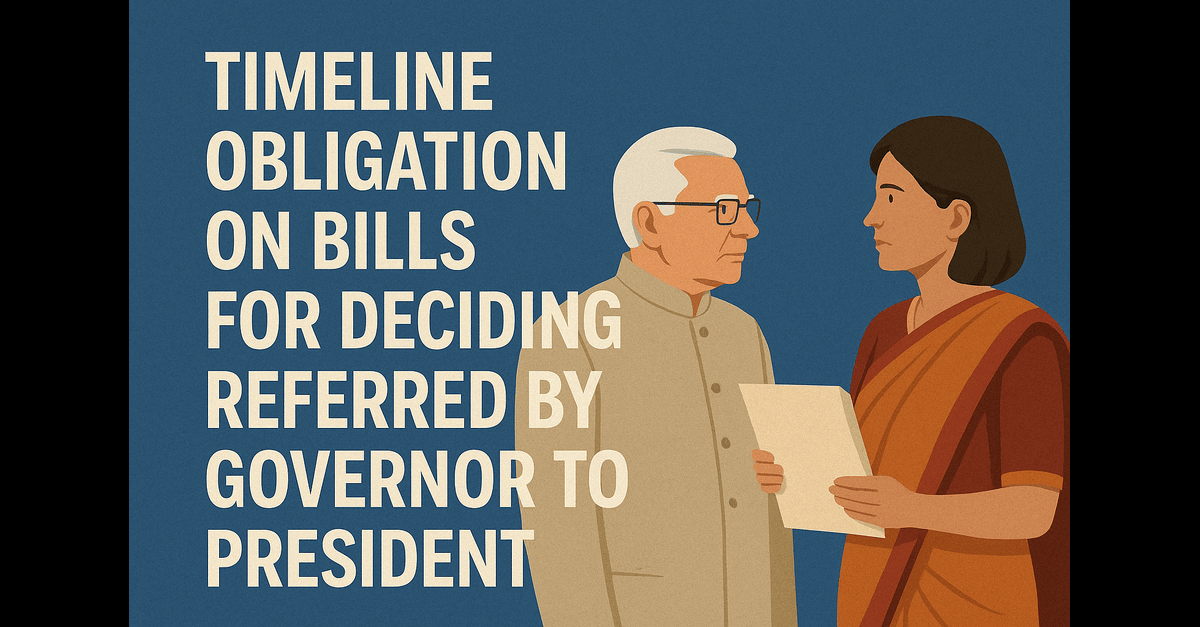INTRODUCTON
The legislative structure of India involves a unique role of cooperation between the centre and the states. The mechanism and the power of the president to reserve certain state bills for their assent is the most unique. The lack of a clear timeline for the president to assent such bills is the loophole that resists the functioning of the state smoothly and leads to legislative uncertainty. So, the Supreme Court, in a recent landmark judgement, has set a 3-month timeline for the president to give assent to the bill referred by the governors. This move will ensure that there is a free flow of the functioning of the state, and the governors will not have to wait for long for the assent of the president.
BACKGROUND
The Supreme Court (SC) of India, in the State of Tamil Nadu vs. Governor of Tamil Nadu,2023, has, for the first time, laid down a 3-month deadline for the President to decide on Bills referred by the Governor under Article 201 of the Constitution. In this case, the president had 10 the bills pending from the governor of Tamil Nadu since 2023, but no response for the same was received, which was hindering the administration. So the governor of Tamil Nadu filed a writ petition in the Supreme Court claiming that the action of the president’s action of reserving the bill with itself is hindering the legislative administration of the state. The delay led to the re-sanction of the bill, and it was sent to the governor for assent, which was again sent to the president in 2023.
KEY PROVISIONS
Article 201 of the constitution of India, Article 200 of the Indian constitution.
RECENT DEVELOPMENT
The Supreme Court expressed serious concerns over the governor’s action and said that once the bill is repassed from the assembly, then the governor has to give its assent without waiting for the president’s assent. Further, it also declared that the president is time-bound to give assent to the bill; the 3 months’ time is the limit in which the president has to give assent to the bill referred by the governors, adding to which it said that the failure on the part of the president to act upon the bill the president is responsible to justify for the delay.
CONCLUSION
The SC’s interpretation of Article 201 establishes a clear three-month deadline for the President to act on state bills, enhancing accountability and reducing arbitrary delays. This decision strengthens federal governance by empowering States to challenge undue delays. It ensures transparency and safeguards against the misuse of executive powers in the legislative process.
“PRIME LEGAL is a full-service law firm that has won a National Award and has more than 20 years of experience in an array of sectors and practice areas. Prime legal falls into the category of best law firm, best lawyer, best family lawyer, best divorce lawyer, best divorce law firm, best criminal lawyer, best criminal law firm, best consumer lawyer, best civil lawyer.”
WRITTEN BY PALAK CHAUHAN


